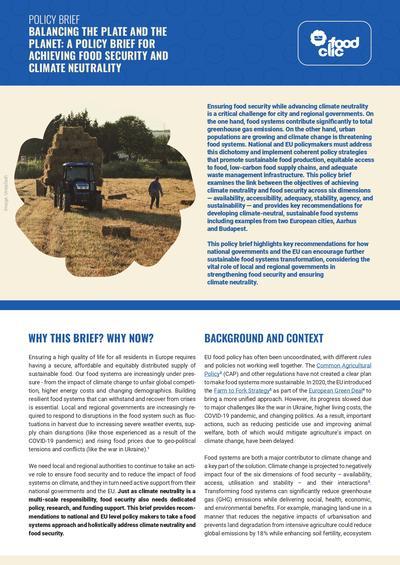Ensuring food security while advancing climate neutrality is a critical challenge for city and regional governments. On the one hand, food systems contribute significantly to total greenhouse gas emissions. On the other hand, urban populations are growing and climate change is threatening food systems. National and EU policymakers must address this dichotomy and implement coherent policy strategies that promote sustainable food production, equitable access to food, low-carbon food supply chains, and adequate waste management infrastructure. This policy brief examines the link between the objectives of achieving climate neutrality and food security across six dimensions — availability, accessibility, adequacy, stability, agency, and sustainability — and provides key recommendations for developing climate-neutral, sustainable food systems including examples from two European cities, Aarhus and Budapest. This policy brief highlights key recommendations for how national governments and the EU can encourage further sustainable food systems transformation, considering the vital role of local and regional governments in strengthening food security and ensuring climate neutrality.
FOODCLIC. We are connecting people, food, policy & places.
FoodCLIC is a four-year project funded by the EU. The project runs from September 2022 to February 2027. The acronym FoodCLIC stands for 'integrated urban FOOD policies – developing sustainability Co-benefits, spatial Linkages, social Inclusion and sectoral Connections to transform food systems in city-regions



